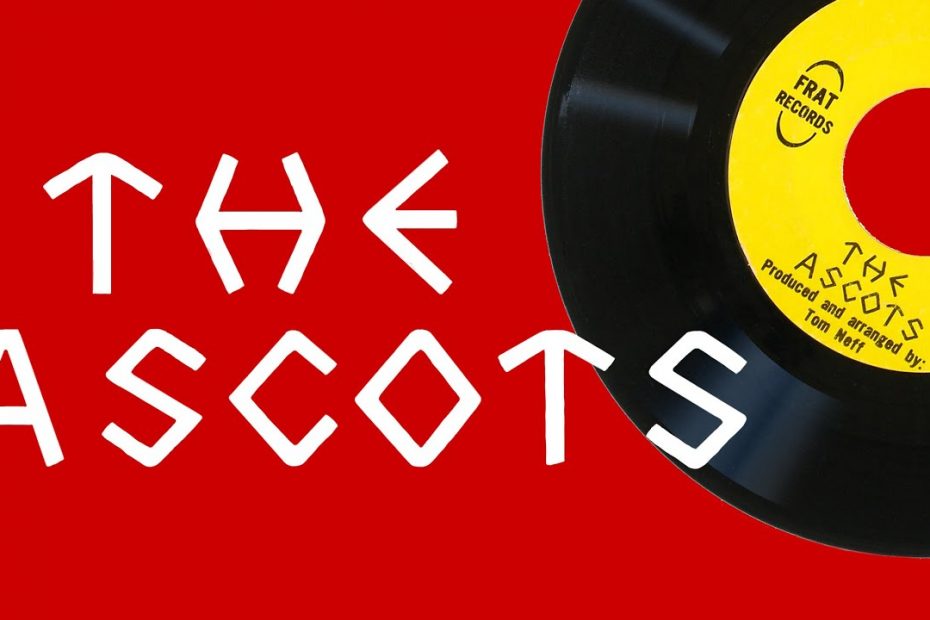
 According to guitarist Dale Kath, the Ascots hailed from the northern Detroit suburb of Pontiac and lasted from 1964 to 1967. The members were between 14 to 16 years old at the time of recording their only single. Frat Records/Watkins Music is the band’s own label-publishing arm. The 45-rpm/7” has no catalog number; the numbers noted on the label are the matrix codes noted in the run-outs.
According to guitarist Dale Kath, the Ascots hailed from the northern Detroit suburb of Pontiac and lasted from 1964 to 1967. The members were between 14 to 16 years old at the time of recording their only single. Frat Records/Watkins Music is the band’s own label-publishing arm. The 45-rpm/7” has no catalog number; the numbers noted on the label are the matrix codes noted in the run-outs.
Chris Chappell — vocals
John Neff — lead guitar
Dale Kath — rhythm guitars
Bob Pelmear — bass
Frank Giglio —drums
Jim Steil — bass (replaced Pelmear; doesn’t appear on the single)
 Courtesy of airplay on Detroit’s WXYZ-FM and Ontario’s CKLW-AM, the band appeared on Robin Seymour’s Swingin’ Time on CKLW-TV “Channel 9” in 1965. After opening for the Turtles during their “Happy Together” tour stop at Detroit’s Cobo Hall in the spring of 1966, Columbia Records picked up the single for national distribution. Prior to their break up, the Ascots opened the Who’s “Happy Jack” tour stop in Detroit.
Courtesy of airplay on Detroit’s WXYZ-FM and Ontario’s CKLW-AM, the band appeared on Robin Seymour’s Swingin’ Time on CKLW-TV “Channel 9” in 1965. After opening for the Turtles during their “Happy Together” tour stop at Detroit’s Cobo Hall in the spring of 1966, Columbia Records picked up the single for national distribution. Prior to their break up, the Ascots opened the Who’s “Happy Jack” tour stop in Detroit.

John Neff and Bob Pelmear later regrouped, along with the brothers Joe and Paul Felice, to form the Tribe. Signed to Punch Andrews’s Hideout Productions (who oversaw Bob Seger’s career, as well as the early Detroit bands of the Eagles’ Glenn Frey), the Tribe issued Neff’s second-composed single, “Maple Street Park.” The Tribe soon changed their name to Pavement, prior to their 1968 break up.
Dale Kath formed the harder-edged Electric Blues Band while John Neff formed the Toad and the Mushroom; the latter recorded but never released an album with Elektra Records; acetates of those sessions aired on local Detroit radio. While EBB opened shows for the MC5 and Bob Seger, T & M opened the Detroit stops of Fleetwood Mac and the Spencer Davis Group.
John Neff’s later career featured award-winning partnerships with Walter Becker of Steely Dan and filmmaker David Lynch, as well as producing the Arnel Pineda-era catalog of Journey. In addition to appearing on 200-plus R&B and soul singles cut at Detroit’s United Sound in the early ’70s, he toured as a guitarist for country artist Hoyt Axton and Steppenwolf.

Dale Kath worked steadily on the Detroit scene into the early ’70s with the house bands Danny and the Zeltones and White Heat.
There are no images or online audio available for the Ascots’ Columbia reissue, or the releases by the Tribe and the Toad and the Mushroom. The Pontiac Ascots are not be confused with the 29 other Ascots that released local and national singles in U.S. during the mid-to-late 1960s.
Article by R.D. Francis
